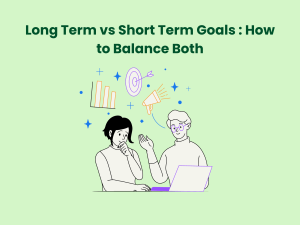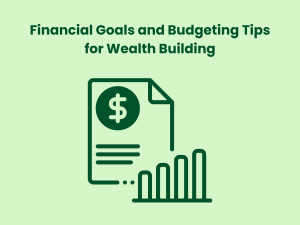Setting intentional personal development goals builds critical life skills, fosters self-discovery and actualizes your human potential. A learning mindset propels growth. Targeted goals across areas like skills, behaviors, experiences and mindsets expand your capabilities and possibilities.
Benefits of Personal Development Goals
Pursuing personal growth has many upsides:
- Builds self-confidence as you surmount challenges
- Creates a sense of purpose by continuously bettering yourself
- Allows reinventing your identity and breaking limitations
- Provides comfort with being a lifelong learner
- Enables navigating life changes skillfully and calmly
- Boosts resilience by strengthening your core
- Sparks creativity by exposing you to new paradigms
- Deepens understanding of yourself and others
Setting Impactful Personal Development Goals
Follow these tips for maximized growth:
- Set SMART goals that are specific, measurable, achievable, relevant and time-bound
- Step outside comfort zones but set milestones within reach
- Build competencies proactively beyond current needs
- Balance pushing yourself with self-compassion
- Develop holistically across mental, physical, emotional and spiritual domains
- Focus on behaviors over inherent talent to foster a growth mindset
- Connect goals to deeper values, purposes and self-concept
- Reevaluate and modify goals as you evolve
Personal Development Goals Examples
Here are some examples of impactful personal development goals:
Learning Goals
– Read 52 books this year across diverse topics
– Listen to 1 educational podcast daily during my commute
– Take an improv class this summer to get comfortable being spontaneous
Wellness Goals
– Establish consistent 7am workout routine 4 days a week
– Practice meditation 20 minutes daily to lower stress
– Wake up before 6am every day to boost productivity
Skills Goals
– Become conversationally fluent in Spanish this year through an immersive language program
– Learn web development by building hobby projects nights and weekends
– Master public speaking by joining Toastmasters and competing in contests
Experiential Goals
– Visit 5 new countries this year to expand cultural awareness
– Volunteer at animal shelter weekly to increase empathy
– Do one new outdoor adventure activity every 2 months
Mindset Goals
– Write in gratitude journal nightly to foster appreciation
– Take improv class to get comfortable with uncertainty
– Develop self-compassion by reframing failures as learning
20 Tips for Achieving Personal Development Goals
Achieving personal development goals involves self-reflection, continuous learning, and intentional actions. Here are some tips to help you successfully work towards your personal development goals:
- Define Clear Goals:
- Clearly articulate your personal development goals. Make them SMART (specific, measurable, achievable, relevant, and time-bound).
- Prioritize Your Goals:
- Identify the most important personal development goals and prioritize them based on your current needs and aspirations.
- Break Goals into Manageable Steps:
- Divide larger goals into smaller, achievable steps. This makes progress more tangible and helps prevent overwhelm.
- Create a Personal Development Plan:
- Develop a detailed plan outlining the actions, resources, and timelines for each goal. Having a roadmap enhances focus and accountability.
- Invest in Continuous Learning:
- Read books, attend workshops, take online courses, or participate in training programs to acquire new knowledge and skills.
- Reflect Regularly:
- Set aside time for self-reflection. Evaluate your development, acknowledge your successes, and pinpoint areas that still require work.
- Build a Growth Mindset:
- Accept challenges and see setbacks as chances to improve and learn. Cultivate a positive and open mindset toward personal development.
- Seek Feedback:
- Request constructive feedback from friends, family, or mentors. External perspectives can provide valuable insights and areas for improvement.
- Develop Emotional Intelligence:
- Enhance your self-awareness, self-regulation, empathy, and interpersonal skills. Emotional intelligence is crucial for personal growth and effective relationships.
- Practice Self-Compassion:
- Be kind to yourself during the journey. Acknowledge that setbacks are part of the process and treat yourself with the same compassion you would offer to others.
- Establish Healthy Habits:
- Cultivate positive habits that contribute to your overall well-being, such as regular exercise, proper nutrition, and sufficient sleep.
- Expand Your Comfort Zone:
- Push yourself to explore new things and step outside your comfort zone. Growth often occurs when you push beyond comfort boundaries.
- Build a Support System:
- Surround yourself with supportive individuals who encourage and motivate you to pursue your personal development goals.
- Practice Mindfulness and Reflection:
- Incorporate mindfulness practices, such as meditation or journaling, to enhance self-awareness and clarity about your values and goals.
- Set Boundaries:
- Learn to say no when necessary and establish boundaries that protect your time and energy for personal development activities.
- Develop Effective Communication Skills:
- Increase your ability to express yourself clearly and listen actively. Effective communication is vital for personal and professional growth.
- Celebrate Achievements:
- No matter how small, acknowledge and celebrate your accomplishments. Recognizing achievements reinforces positive behavior and motivation.
- Network and Connect:
- Interact with those who have similar objectives and interests. Networking can offer insightful information, encouragement, and opportunities for collaboration.
- Regularly Evaluate and Adjust:
- Periodically assess your personal development plan and adjust it based on changing priorities, experiences, and aspirations.
- Practice Gratitude:
- Cultivate a habit of gratitude. Reflect on and appreciate the positive aspects of your life, fostering a positive outlook on personal development.
Remember, personal development is an ongoing process. Stay committed, be patient with yourself, and embrace the journey of continuous growth and self-improvement.
How to Overcome Roadblocks for Personal Development Goals
Overcoming roadblocks on the path to personal development is a common challenge, but with resilience and strategic planning, you can navigate through them successfully.
Here are some strategies to help you overcome roadblocks for your personal development goals:
- Identify and Acknowledge Roadblocks:
- Clearly identify the obstacles or challenges you are facing. Discovering solutions begins with acknowledging them.
- Reassess Your Goals:
- Take a step back and reassess your personal development goals. Ensure they are realistic, achievable, and still align with your values and aspirations.
- Break Goals into Smaller Steps:
- If your goals seem overwhelming, break them into smaller, more manageable steps. Tackling smaller tasks can make progress feel more achievable.
- Prioritize and Focus:
- Set your goals in order of significance and relevance. Focusing on one goal at a time can help prevent feeling overwhelmed.
- Seek Support and Guidance:
- Reach out to friends, family, mentors, or colleagues for support and guidance. Sharing your challenges can provide valuable insights and perspectives.
- Develop Problem-Solving Skills:
- Enhance your problem-solving skills to effectively address challenges. Break down problems into smaller components and explore potential solutions.
- Adjust Your Approach:
- If your current strategy isn’t working, be flexible and open to adjusting your approach. Try out various approaches until you determine which one suits you the most.
- Learn from Setbacks:
- View setbacks as opportunities to learn and grow. Analyze what went wrong, extract lessons, and use that knowledge to refine your approach.
- Cultivate a Growth Mindset:
- Embrace a growth mindset by seeing challenges as opportunities for development. Have faith in your capacity to grow and learn.
- Address Procrastination:
- If procrastination is a roadblock, identify its root causes and implement strategies to overcome it. Break tasks into smaller steps and set deadlines.
- Manage Time Effectively:
- Time management is crucial for personal development. Prioritize tasks, create schedules, and eliminate time-wasting activities to make the most of your time.
- Address Fear of Failure:
- If you have a fear of failing, identify it and deal with it. Understand that setbacks are a natural part of the learning and growth process.
- Adopt a Positive Mindset:
- Cultivate a positive and optimistic mindset. Focus on the progress you’ve made rather than dwelling on challenges.
- Celebrate Small Wins:
- Acknowledge and celebrate small achievements along the way. Recognizing achievement increases motivation and encourages positive behavior.
- Seek Professional Help if Needed:
- If roadblocks are persistent or related to deeper issues, consider seeking professional help from a coach, therapist, or counselor.
- Adjust Expectations:
- If you find yourself consistently falling short of expectations, reassess and adjust your goals or timelines to make them more realistic.
- Stay Persistent:
- Personal development is a roller coaster ride. Stay persistent and committed to your goals, even when facing challenges.
- Reflect and Learn:
- Regularly reflect on your journey. Assess what’s working, what’s not, and use this insight to refine your strategies.
- Stay Flexible:
- Be adaptable and open to change. Life circumstances and priorities can shift, requiring adjustments to your personal development plan.
- Recharge and Take Breaks:
- Remember to take breaks and refuel as needed. Burnout can hinder personal development, so ensure you balance effort with self-care.
FAQ About Personal Development Goals
How do I find time for personal development amidst life’s busyness?
Schedule focused time for your growth consistently, even just 15-30 minutes daily. Cut out low-value activities and prioritize skill-building.
What if I achieve my goals but don’t feel happier?
Assess if the goals truly resonate rather than just reaching arbitrary goals. Review if new growth areas better represent your evolving self.
Can personal development goals conflict with professional goals?
Align professional goals with skills critical for advancement. Negotiate with the workplace for support if needed.
How often should I modify personal development goals?
Review goals every few months for relevance, or when passions change. The objective is lifelong growth, not just finishing prescribed goals.
How can I maintain motivation for long-term goals?
Focus on the next milestone instead of a distant endpoint. Stay inspired by remembering why the goal deeply matters to you.
Committed personal growth builds reservoirs of inner strength to navigate life’s storms. The journey of self-discovery never ends. Continual improvement is success.



